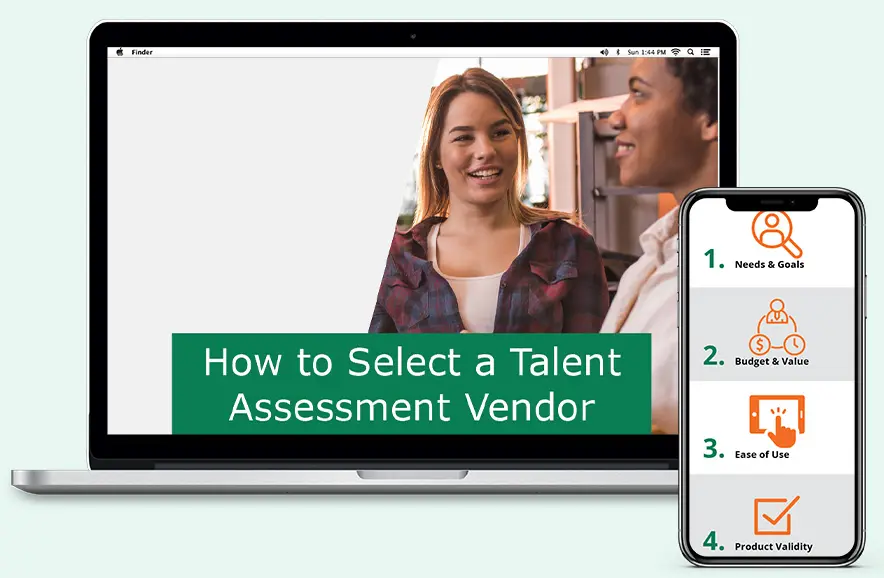Artificial intelligence (AI) in hiring isn’t new. Over the years, it has evolved from simple automation, like keyword-based resume screening and job matching, to more complex tools that enhance efficiency. These advancements include predictive analytics, which forecast candidates’ success based on various data points. And today, the newly introduced generative artificial intelligence (GAI) platform ChatGPT, is being employed by thirty percent of Canadian companies to improve operations.
AI plays a significant role in modernizing and streamlining hiring and recruitment processes. It helps with tasks such as resume screening, candidate sourcing, and interview scheduling, saving time for hiring managers. Human resource (HR) professionals can also use AI tools, to analyze large amounts of data to find the right candidates based on their skills, experiences, behaviors, and qualifications.
Despite the benefits, there are risks associated with advancing AI in hiring and recruiting. Not only are HR professionals confronted with new GAI programs, like ChatGPT and Bing AI Chat, utilized by job applicants to create applications—making it harder to differentiate between candidates—but also, new government regulations are shaping the utilization of AI in recruitment, aiming to reduce bias and ensure privacy.
The Impact of Artificial Intelligence Regulations on Hiring and Recruitment
Over the years, AI has changed the hiring and recruitment landscape. With the advancements, concerns about discrimination and privacy have been raised, and legislatures are striving to stay ahead. Lawsuits have been won, indicating that AI-powered hiring tools can discriminate based on applicants’ age, race, and sex, as well as, flag specific words that enable organizations to rule out candidates for various reasons. Worries about privacy have also increased as AI becomes increasingly sophisticated.
With lawsuits occurring more and more frequently, government regulations are being added to recruitment processes globally. In November 2023, Ontario introduced Bill 149, which requires employers to disclose AI use and salary ranges in hiring. The aim is to ensure workers aren’t excluded from jobs due to technological biases, to protect their privacy, and to help them make informed decisions in their job search.
New York City has also enacted a bill that requires organizations to conduct a bias audit on automated employment decision tools before using them. The bill mandates notifying candidates living in the city about the tools’ utilization in assessments or evaluations for hiring, as well as informing them about the job qualifications and characteristics used by the AI tool.
More than ever, organizations are encouraged to adopt practices that ensure their usage of AI complies with hiring and employment laws. These practices include regular testing (including bias testing) and reviews on their AI tools, proper HR training, and the inclusion of human intervention. As the world continues to move forward with AI, HR professionals need to understand its impact on their industry and learn the pros and cons of using it.
Benefits of AI in Hiring and Recruitment
Despite the ‘aid’ that chatbots provide to job applicants, a recent report by the Future of Recruiting stated that 68% of hirers in 2023 said they were “very hopeful” or “cautiously optimistic” about the impact of GAI on recruiting and how it can save them time.
In addition to time savings, there are many other benefits to an organization’s proper usage of AI in hiring and recruiting:
1. Improvement in efficiency and speed.
AI streamlines various recruitment processes, such as resume screening, candidate sourcing, and initial assessments, significantly reducing the time recruiters spend on these tasks. It can handle large volumes of data and repetitive tasks more quickly and accurately than humans.
2. Enhancing accuracy in candidate screening.
AI uses advanced algorithms to match job requirements with candidate qualifications, skills, and experiences more effectively. This results in better candidate-job fit and increases the likelihood of hiring suitable candidates.
3. Reduces bias in recruitment (sometimes).
AI can help minimize our unconscious biases (assumptions and prejudgments about groups of people that exist outside of one’s awareness) as well as confirmation biases (the tendency to interpret new evidence as confirmation of one’s existing beliefs or theories) in hiring decisions by focusing on objective rather than subjective screening of factors. This can result in fairer and more inclusive recruitment practices. However, AI is not always unbiased and should be utilized with caution (see #2 Pitfall below).
4. Enhances the candidate’s application experience.
AI-driven tools, such as chatbots, can offer immediate responses to candidate queries, providing a positive experience and engaging applicants throughout the recruitment process.
Pitfalls of AI in Hiring and Recruitment
While AI brings numerous benefits to hiring and recruitment processes, it also presents several potential pitfalls:
1. Concerns about candidate privacy and data security.
As it can handle large volumes of data and repetitive tasks more quickly and accurately than humans (a benefit in many cases), there is a concern about the mishandling or misuse of this data as it can have legal and ethical implications for organizations and individuals.
2. Potential for algorithmic bias.
Although AI can reduce bias in recruitment by focusing on objective criteria rather than subjective factors, AI systems can also inherit biases present in historical data, leading to biased decision-making in candidate selection. If the data used to train AI models is biased, it can perpetuate existing prejudices.
In 2014, Amazon began working on an AI-powered recruiting tool and quickly learned that the tool was showing bias against women. It was published that Amazon trained its computer models to evaluate applicants by analyzing resume patterns submitted to the company over a decade. As the majority of these submissions were from men, Amazon’s system inadvertently learned to favor male candidates. Consequently, it downgraded resumes featuring the term ‘women’.
3. Limitations of AI in assessing human attributes and interpersonal skills.
Although some AI tools use NLP and machine learning techniques to analyze aspects of a candidate’s personality through text and speech, AI screening has difficulty assessing candidates’ decision-making skills and cultural fit within the organization.
4. Generative AI is making it easy for everyone to submit a good resume and cover letter.
New generative AI technologies make it difficult for recruiters to discern resumes from one another making initial applicant selection difficult.
Artificial Intelligence’s Place in Recruitment
As AI continues to transform recruitment and hiring, its journey from simple automation to GAI is significant. Despite challenges, AI remains important, expediting processes, enhancing candidate matching, and engaging applicants. Yet, concerns about discrimination, privacy, and real human assessment persist. As the world advances, it is important to realize that AI is here to stay. Organizations must navigate its strengths and limitations ethically for fairer, more efficient recruitment.
With the introduction of GAI, and its ability to help candidates with their applications, employee assessment solutions will become increasingly important as they can gain in-depth objective, reliable, and accurate information about candidates that isn’t showcased by chatbots. Our next article will touch on how TalentClick, a global leader in employee assessments and workforce technologies, leverages AI for data analysis and benchmarking to improve employee assessments responsibly.










